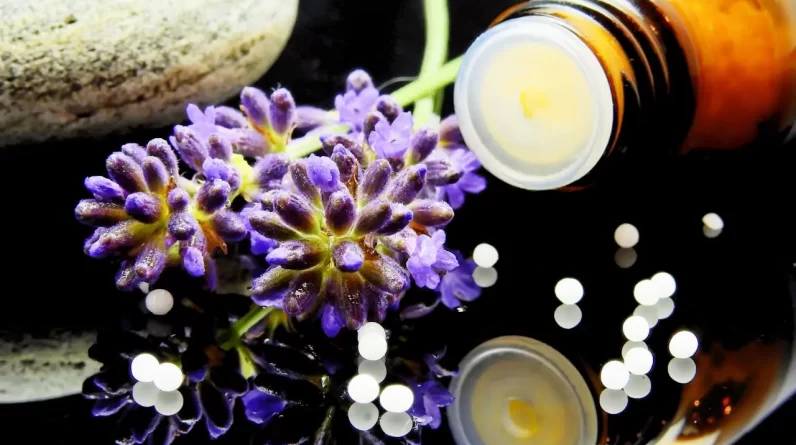
Does the scent of lavender help you feel more relaxed?
Do you notice how peppermint tends to invigorate you? Or maybe the smell of lemon always puts you in a good mood?
Let’s talk aromatherapy!
Aromatherapy promotes physical and mental well-being via the use of natural plant extracts. In many cases, you’ll hear people refer to this as “essential oils,” with many more using an oil diffuser to emit the scent and gain the benefits.
And if you’re new to aromatherapy or have just begun to dip your toes into this cool endeavor, you’ve come to the right place.
Below, we’re covering all the basics.
- What should you know?
- Where did aromatherapy even start?
- What benefits can you receive from using aromatherapy in your daily life?
Let’s dive in!
History of Aromatherapy
For thousands of years, aromatherapy has weaved its way through human history. Yet, it wasn’t given its name until the 1930s by a French chemist named Rene-Maurice Gattefosse.
In fact, the ancient cultures of Egypt, China, India, and more frequently used plant extracts for medicinal uses, as well as to make balms, resins, and oils.
Essential oil distillation, then, emerged in the 10th century. Making its way through time, it’s used by many individuals and in therapeutic practices to enhance overall health and wellness.
How Does Aromatherapy Work?
Technically, aromatherapy works via smell or via skin absorption.
As previously mentioned, many people use oil diffusers to emit the scent into the air. However, you can also purchase aromatized spritzers, body creams and lotions, body oils, bathing salts, inhalers, and more—helping you reap the benefits!
There are also hundreds of oils to choose from, depending on what you need and your goals with aromatherapy.
What is Aromatherapy Commonly Used For?
“Aromatherapy is a caring, hands-on therapy which seeks to induce relaxation, to increase energy, to reduce the effects of stress, and to restore lost balance to the mind, body, and soul.” — Robert Tisserand
Aromatherapy is often associated with its relaxation effects. However, relaxation isn’t the only feeling it can induce. And there’s plenty of research to back up its benefits. Let’s take a closer look.
5 Benefits of Aromatherapy
So, what are some proven benefits of aromatherapy? These are our top 5:
1. It can help reduce headaches.
Some plant extracts have been shown to help reduce headaches simply by inhaling the scent. In particular, research demonstrates how lavender essential oil is effective at reducing migraines.
2. It reduces stress.
It’s no secret that some scents produce ultra-calming effects, even helping some individuals ease into sleep. Again, lavender seems to be the scent of choice that helps individuals find a state of Zen and relaxation.
Related Article: These 11 Relaxing Activities Will Refresh & Recharge Your Mind, Body and Spirit
3. It decreases pain.
Aromatherapy has been shown to be very useful in decreasing pain.
It’s thought to help alleviate body aches and joint discomforts, with popular scents including sandalwood, peppermint, and rosemary.
4. It helps you sleep.
Perhaps one of the biggest claims to fame for aromatherapy is its ability to help an individual gets a good night’s rest.
If you guessed lavender as the top scent for this one, you’re right! And perhaps this is why many bath salts include a hint of lavender; it can further your relaxation and help you prepare for bedtime.
5. It improves mood.
Scents, such as orange or sage, can help uplift your vibes, helping you get out of that blue mood.
Again, lavender seems to be the ultra-master essential oil, since many attribute it to helping improve their mood and make them feel better.
Related Article: Hypnosis for Anxiety & Depression: How Does it Work & Can it Help You?
Aromatherapy Massage
So, what about massage?
Well, this basically takes aromatherapy and relaxation to a whole other level.
Aromatherapy massage involves the use of essential oils in a massage setting. This allows the skin to absorb the oil, as well as you to smell the scent, really taking this therapeutic approach up a notch.
And many massage places offer this type of therapy. Alternatively, you can also spice things up with your significant other by giving each other massages using essential oils!
Aromatherapy: Indulge Your Senses!
But at the same time… make sure to use caution.
If you’ve never done aromatherapy before, don’t go spreading the essential oil all over yourself.
Experts recommend diluting essential oils before applying as well in order to reduce the chance of an adverse reaction.
As a general rule, you should keep concentration levels of essential oils below 5%. You can easily dilute your essential oils by blending a few drops with a carrier oil. Carrier oils are typically vegetable-based — examples are almond oil, jojoba, or coconut oil. – Healthline
Rather, test it on a small portion of your skin first to ensure you aren’t allergic.
On top of this, never ingest the essential oil.
Keep it strictly for topical use only.
And now that you’ve got the basics down, you just need to go find what scents are your favorite so you can achieve all your health goals and more. Is aromatherapy something you’re going to give a try?
Read Next: What is Reiki & Can Energy Healing Help You? What Happens During a Reiki Session?
Editor’s note: This article was originally published Jun 22, 2022 and has been updated to improve reader experience.







